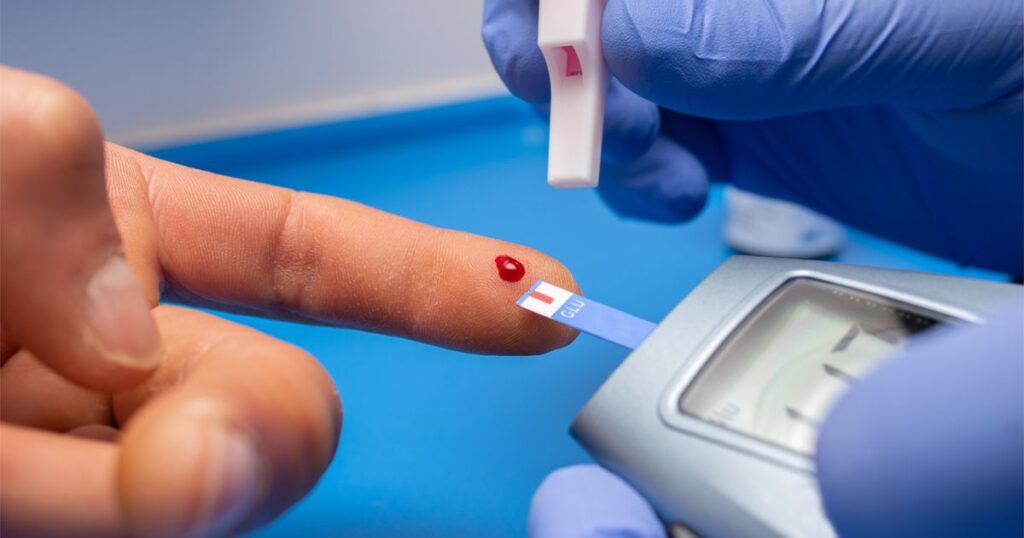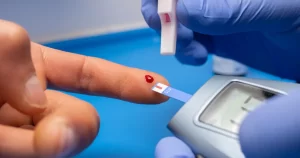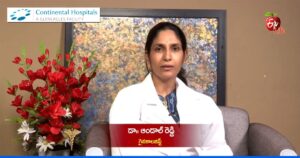Early Diagnosis of Diabetes: Key to Prevention and Treatment
- relief-clinic
- Nov 1, 2023

India has been referred to as the “diabetes capital” of the world due to the high prevalence of diabetes in the country.
There are several reasons why India has earned this title:
- 1. Population: India has a massive population, currently standing as the second most populous country in the world. With over 1.3 billion people, even a relatively small percentage of the population affected by diabetes can result in a large number of cases.
- 2. Opt for nutritious fruits: Indians have a genetic predisposition to developing diabetes. Studies have shown that people of Indian origin are more prone to developing type 2 diabetes compared to other ethnic groups. This genetic susceptibility, combined with modern lifestyle factors, contributes to the high prevalence of diabetes in India.
- 3. Urbanization and lifestyle changes: India has been experiencing rapid urbanization and Significant lifestyle changes over the past few decades. Urban areas often have sedentary lifestyles, unhealthy diets, and increased stress levels. These factors, along with the adoption of a Westernized diet that is high in calories, unhealthy fats, and refined sugars, contribute to an increased risk of developing diabetes.
- 4. Obesity epidemic: India is also facing an obesity epidemic, with a growing number of individuals being overweight or obese. Obesity is a significant risk factor for developing type 2 diabetes, and the increasing prevalence of obesity in India has contributed to the diabetes burden.
- 5. Lack of awareness and healthcare infrastructure: Despite the growing prevalence of diabetes, there is still a lack of awareness about the condition in many parts of India. Additionally, the healthcare infrastructure in some areas may be insufficient to manage and prevent diabetes effectively.
It’s important to note that efforts are being made in India to address the diabetes epidemic. Public health initiatives, awareness campaigns, and improved healthcare facilities are being implemented to promote diabetes prevention, early detection, and management.
Pre-diabetes is a condition characterized by higher-than-normal blood sugar levels but not high enough to be classified as type 2 diabetes. It is considered an intermediate stage between normal blood sugar levels and a diabetes diagnosis. People with pre-diabetes have an increased risk of developing type 2 diabetes, as well as other health problems like heart disease and stroke.
Testing for pre-diabetes
Here are a few reasons why testing for pre-diabetes is beneficial:
- 1. Early Intervention: Identifying pre-diabetes allows individuals to take proactive steps to prevent or delay the progression of type 2 diabetes. Lifestyle modifications such as adopting a healthy diet, increasing physical activity, and losing weight (if overweight) can significantly reduce the risk of developing diabetes.
- 2. Reduce sugary foods/beverages: Pre-diabetes is associated with an increased risk of complications even before diabetes develops. These complications include cardiovascular diseases, kidney damage, nerve damage, and eye problems. Early identification allows for timely interventions to prevent or minimize the risk of these complications.
- 3. Education and Awareness: Testing for pre-diabetes raises awareness about the condition and its associated risks.
- 4. Targeted Treatment: Identifying pre-diabetes helps healthcare providers tailor treatment plans to individual needs. They can provide personalized guidance on nutrition, exercise, and medication (if necessary).
Testing for pre-diabetes typically involves:
· A fasting blood glucose test.
· An oral glucose tolerance test (OGTT).
· A hemoglobin A1c (HbA1c) test.
If you have concerns about your blood sugar levels or risk factors for pre-diabetes, it is important to consult with a healthcare professional who can evaluate your specific situation and recommend appropriate testing.
If diabetes is left untreated or poorly managed, it can lead to a variety of complications affecting various parts of the body.
Here are some potential complications that can arise from untreated diabetes:
- 1. Cardiovascular Complications: Diabetes increases the risk of cardiovascular conditions such as coronary artery disease, heart attack, stroke, and high blood pressure. High blood sugar levels can damage blood vessels and contribute to forming fatty deposits, narrowing the arteries and impairing blood flow.
- 2. Kidney Damage (Diabetic Nephropathy): Elevated blood sugar levels over time can damage the kidneys' filtering units, leading to diabetic nephropathy. It can progress to chronic kidney disease and, in severe cases, require dialysis or kidney transplantation.
- 3. Nerve Damage (Neuropathy): Diabetes can cause nerve damage, leading to symptoms such as numbness, tingling, or pain in the hands, feet, or legs. This condition is known as diabetic neuropathy. It can also affect the digestive system, leading to problems like gastroparesis (delayed stomach emptying) or erectile dysfunction in men.
- 4. Eye Complications: Diabetes can damage the blood vessels in the retina, leading to diabetic retinopathy. It can cause vision problems, including blurred vision, floaters, or even blindness if left untreated. Diabetes also increases the risk of other eye conditions like cataracts and glaucoma.
- 5. Foot Complications: Poor circulation and nerve damage in the feet can lead to foot problems in people with diabetes. Wounds or ulcers may develop and heal slowly due to impaired blood flow and reduced sensation. In severe cases, this can result in infections, gangrene, and the need for amputation.
- 6. Skin Complications: Diabetes can affect the skin, making it more susceptible to infections, fungal infections (such as candidiasis), and slow wound healing. It can also lead to conditions like diabetic dermopathy (light brown patches on the skin) and eruptive xanthomatosis (small yellow bumps on the skin).
- 7. Increased Infection Risk: High blood sugar levels can weaken the immune system, making individuals with diabetes more vulnerable to infections. Common infections include urinary tract infections, skin infections, and yeast infections.
- 8. Dental and Gum Problems: Diabetes increases the risk of gum disease (periodontitis) and tooth decay. It can also impair the healing process after dental procedures
It’s important to note that with proper diabetes management, including blood sugar control, a healthy lifestyle, and regular medical care, the risk of developing these complications can be significantly reduced. If you have diabetes, it is crucial to work closely with your healthcare team to manage the condition effectively and minimize the risk of complications.
About the Author:
Dr. Venkatesh Billakanti is an experienced general physician who works at Relief Clinic in Manikonda and Yashoda Hospital in Hitech City.




